Pests that Invade in the Rainy Season: Home Defense and Health Precautions!


With the rainy season here, it brings dampness and happiness to many people. But remember, heavy rain and floods can also bring various pests into our homes. Some of these animals can be harmful and dangerous. In this article, PropertyScout will help us learn about these different creatures that show up during the rainy season. Which animals should you know about? This information will help us protect ourselves and our family from bites, annoyances, and possible dangers. We'll also talk about easy ways to prevent issues and what to do if something happens.
What are the dangerous pests and creatures that accompany the rainy season?
During the rainy season, there are various types of troublesome animals. These include non-venomous mammals that carry dangerous diseases, as well as crawling creatures and different types of insects with venom. If bitten, it can become a serious issue. If the bitten person shows allergic reactions, they must promptly seek medical attention.
Snakes
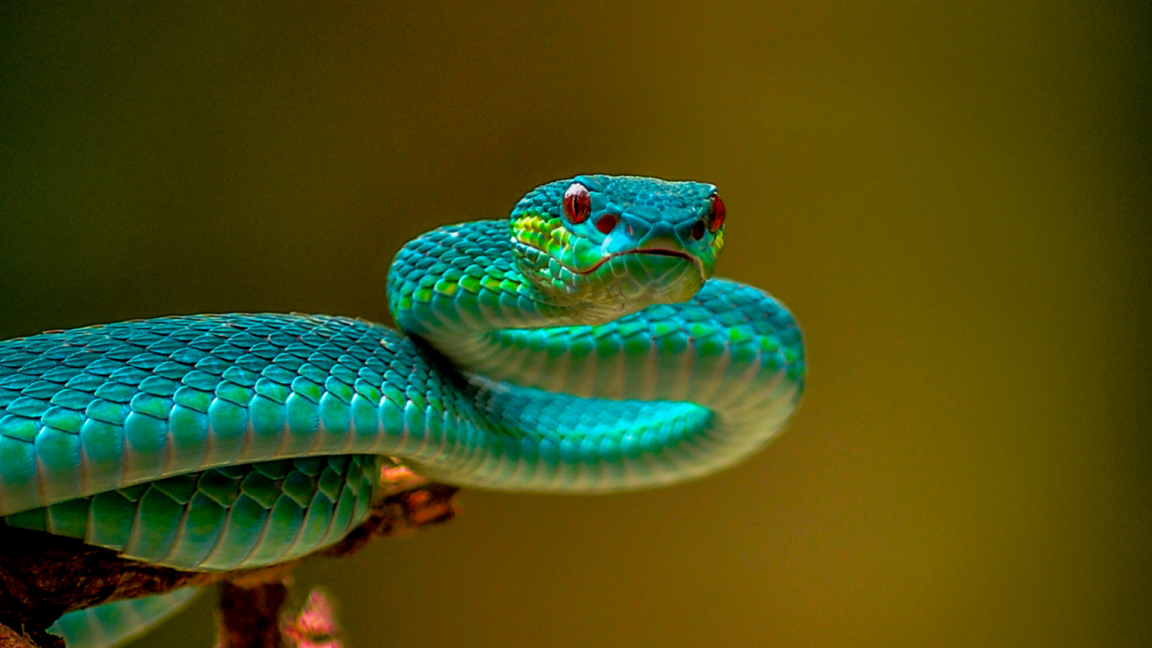
Snakes are among the most venomous creatures to watch out for. During the rainy season, snakes might seek refuge in homes, and encounters with them, like finding them in shoes or mailboxes, become more common (or sometimes appearing in somewhere as random as the toilet). According to data from the Thai Red Cross Society, Thailand's most encountered venomous snakes include cobras, Siamese spitting cobras, kraits, and Malayan pit vipers. Their venom affects the nervous system, leading to muscle paralysis starting from small muscles to larger ones. Initial symptoms of a snake bite include drooping eyelids, difficulty swallowing, slurred speech, progressing to respiratory failure and even death.
Additionally, another common category of venomous snakes is those affecting the blood system, like the Siamese cat snake, keelback snake, and green pit viper. Bites from these snakes result in pain, swelling, blood-filled blisters, and internal bleeding. The venom of the green pit viper can lead to widespread swelling due to the blood's inability to clot, causing continuous internal bleeding in organs like the abdomen, gums, and brain, potentially leading to sudden kidney failure and death.
First aid for Snake Bites
- Keep the bitten area still to slow the venom spread. Wrap a stretchy bandage from above the bite to above the joint, then release every 15-20 mins to avoid cutting off blood circulation.
- Clean the wound with clean water or antiseptic solution like alcohol or iodine.
- Try to move the bitten area as little as possible, use a splint or sturdy object covered with a sterile cloth to help immobilize the bitten area.
- Do not squeeze or suck the wound, and avoid herbal remedies to prevent infection and complications.
- Seek medical help immediately. Bring the snake's body for identification (if possible). If not, remember its appearance. Follow the aforementioned steps if you are unable to reach a hospital in time and emergency services as soon as possible.
There are various types of snakes, both venomous and non-venomous. If bitten by a venomous snake, you'll see 1-2 puncture wounds with a distinct fang mark. The fangs resemble a hypodermic needle and often result in oozing blood. However, if there are no fang marks, only scrapes or scratches, it's likely a non-venomous snake.
In case of a venomous snake bite, call emergency hotline, 1669, and perform first aid as instructed by authorities. Then, swiftly transport the patient to the hospital.
How to prevent snakes from entering your house
- Seal openings like gaps in windows and doors tightly to prevent snake entry.
- Inspect and fix water pipes at points where they leak or are broken, as snakes often seek water sources.
- Don't store unused items with gaps that snakes can hide in, like old boxes. Dispose of them if not in use.
- Store pet food securely to prevent snakes from coming for food.
- Maintain a tidy environment around your home. Trim tall grass and remove rubbish or unused items.
- Avoid planting in gardens with dense vegetation as it provides snakes with shelter.
Toads

Toads are amphibians that produces a white toxic secretion known colloquially as "toad venom". The venom glands of the toad are located along its back and certain parts of its body. If you come into contact with toad venom on the skin, it can cause mild irritation but usually doesn't have significant effects on other bodily systems.
First aid for toad venom
- In the case of coming into contact with toad venom on the skin, promptly wash and clean the affected area with water and soap thoroughly.
- If a person accidentally ingests toad venom, immediately take the patient to a doctor for urgent medical treatment.
How to prevent toads from entering your house
While toads are beneficial for the ecosystem in gardens as they help control other creatures like snails and various insects, if you don't want them inside your home, you can sprinkle borax powder around the house. Pay special attention to damp areas. The pungent odor of borax will deter toads from getting close to those areas.
Rats
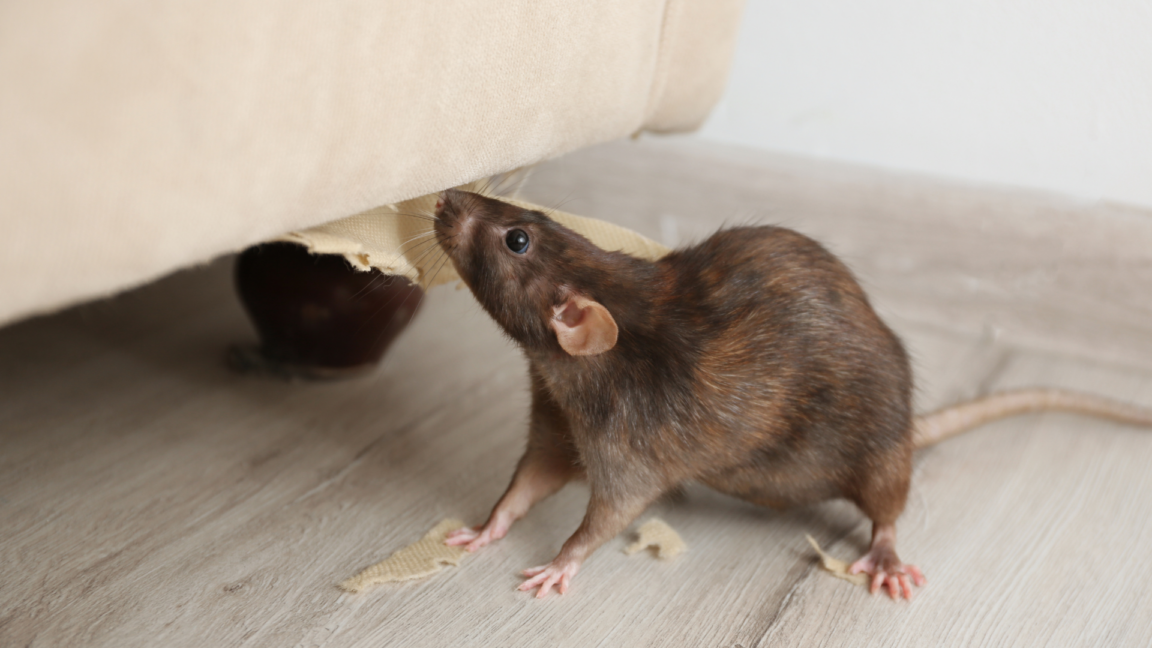
Rats tend to seek shelter indoors during the rainy season. Despite not being dangerously venomous, they can carry diseases and act as carriers of various illnesses. Rat-borne diseases, such as leptospirosis, often spread during the rainy season. Additionally, rats have a high reproductive rate. Therefore, if you have rats in your home, it's essential to take urgent measures to prevent the potential health risks they can pose to the household members.
How to prevent rats from entering your house
- Seal openings or gaps that rats can use to enter, such as gaps around windows and doors.
- Repair damaged areas that could serve as rat entry points, such as leaks in water pipes or cracks in walls and ceilings.
- Avoid storing unused items that rats can hide in, like old boxes.
- Maintain good cleanliness in the house, avoiding food scraps or leftovers that might attract rats.
- Wash dishes and kitchenware after use to minimize food odors that could attract rats.
- If possible, avoid planting vegetables or fruit-bearing plants near the house, as this can provide a food source for rats.
- Use rat traps or bait stations in areas where rat sightings are common, like under sinks or behind refrigerators.
Millipedes
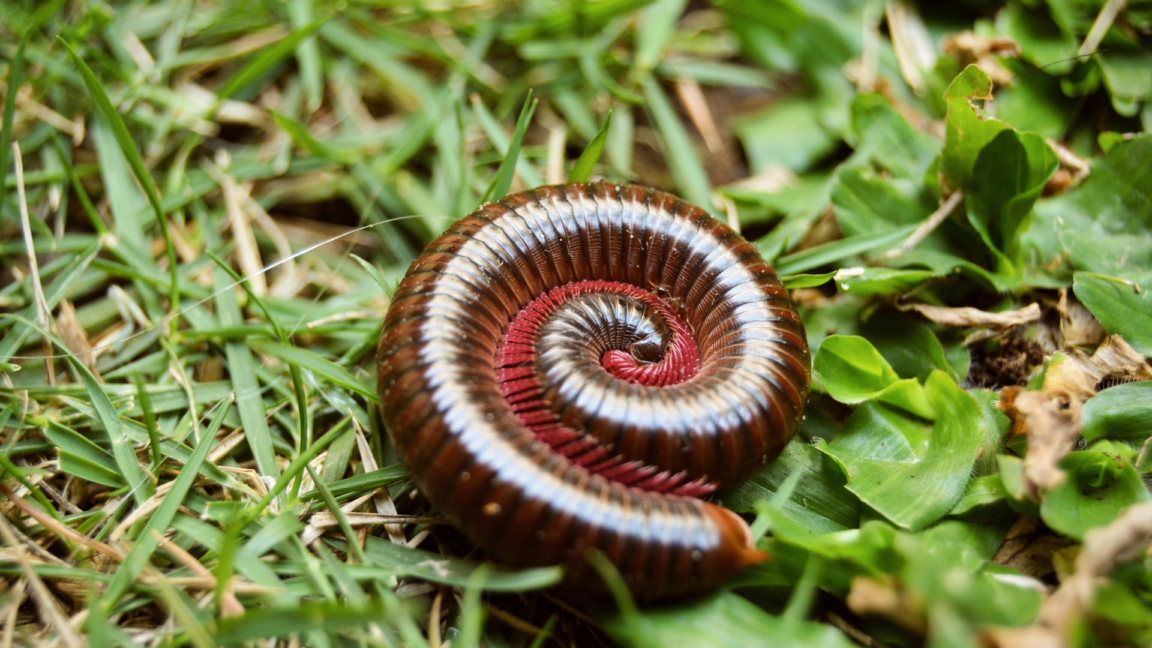
During the rainy season when areas are wet, it's not surprising that millipedes might seek shelter in damp corners inside the house. Therefore, it's important to regularly inspect and manage areas where millipedes might find refuge, preventing them from settling in. If you come across tightly curled, firm millipedes, be aware that some species can have a mild toxin. Certain millipedes can release a liquid toxin from their joints or even emit hydrogen cyanide gas for defense. However, these toxins generally have minimal effect on human beings, unless someone has sensitive or easily irritated skin, in which case they might experience slight stinging, itching, or redness upon contact with millipedes. Despite this, they aren't highly dangerous.
First aid for Millipede Toxins
- If you get exposed to millipede toxin, quickly clean the affected skin area with clean water and wash with soap multiple times. While cleaning might not entirely remove any redness or irritation, it can help reduce the effects of millipede toxin, bacteria, and accompanying diseases that may come from the millipede.
- For those who experience allergies, taking antihistamines can be beneficial. If there's pain, pain relievers can be taken as well. Typically, millipede bites will eventually heal. However, if the condition doesn't improve, or if the allergic reaction is severe, it's important to promptly consult a medical professional.
How to prevent millipedes from entering your house
- Regularly inspect and manage to prevent the accumulation of materials or hiding spots where millipedes could enter.
- If there are large trees that continually shed leaves, it's advisable to sweep away leaf debris. This helps eliminate a potential food source for millipedes, encouraging them to seek food elsewhere.
- You can use mothballs as well. Simply scatter them in areas where millipedes tend to appear. Doing this can help drive millipedes away from your home.
Centipedes
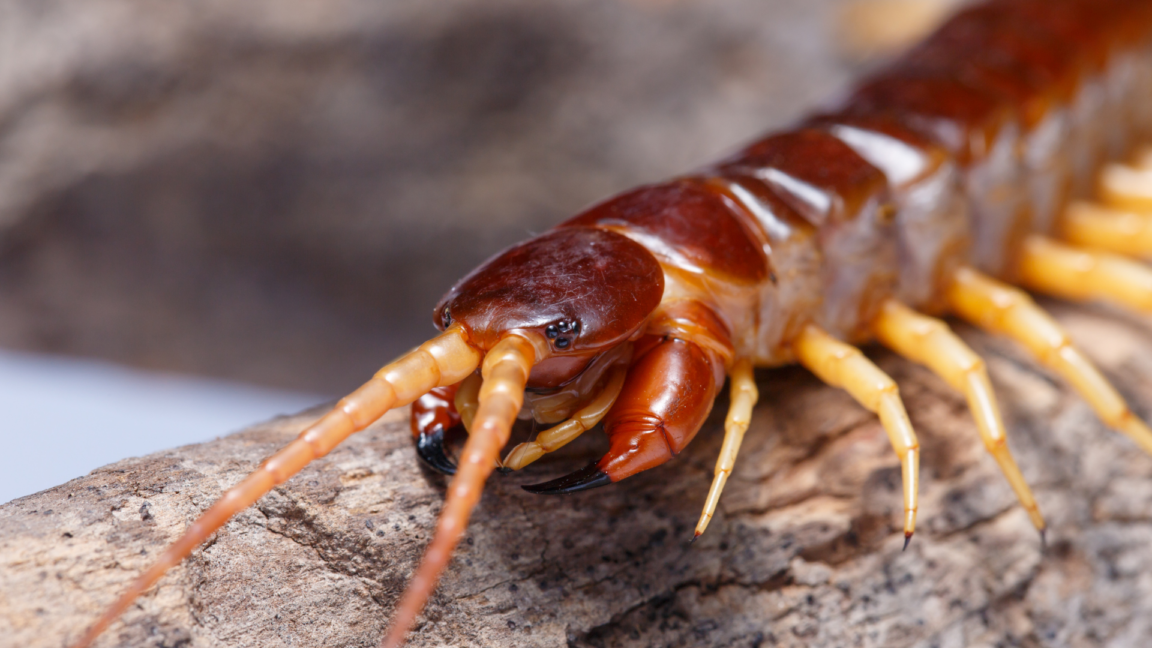
During the rainy season with humid weather, there tends to be an increase in centipedes. The venom of centipedes can indeed be harmful. They possess venom in their front pair of legs, located at the first segment of their body. When bitten by a centipede, you'll notice a double puncture wound with two blood spots resembling a burn mark. After being bitten, the venom spreads, causing redness, swelling, pain, and a burning sensation.
Some individuals might experience nausea, headaches, dizziness, and even localized paralysis around the bitten area. There's also a possibility of bacterial infection from the centipede's bite wound. However, it's important to note that the venom of centipedes is not usually lethal. Prompt treatment is recommended to prevent complications.
First aid for centipede venom
- Basic care for a centipede bite includes washing the wound with clean water, lathering soap for at least 30 seconds, and then using a cloth wrapped with ice to apply cold compresses. This helps alleviate pain and swelling.
- Take painkillers when you feel pain, but if there are severe allergic reactions to centipede venom, promptly take the patient to see a doctor for immediate medical attention.
How to prevent centipedes from entering your house
- Centipedes thrive in humid environments. Upon finding a source of moisture, they use it as a breeding ground to lay eggs and reproduce, often expanding rapidly throughout different spots within a house. Therefore, it's important to check for areas of moisture in the house and ensure that sunlight reaches those areas. Additionally, maintaining cleanliness in the corners of the house helps eliminate potential hiding spots for centipedes.
- Centipedes often enter houses through pipes, including bathroom and kitchen drainpipes. Using soap bars to block these entry points can be effective, as the alkaline nature of soap deters centipedes due to its perceived danger. Additionally, the slippery texture of soap prevents centipedes from crawling up the surface.
Scorpions
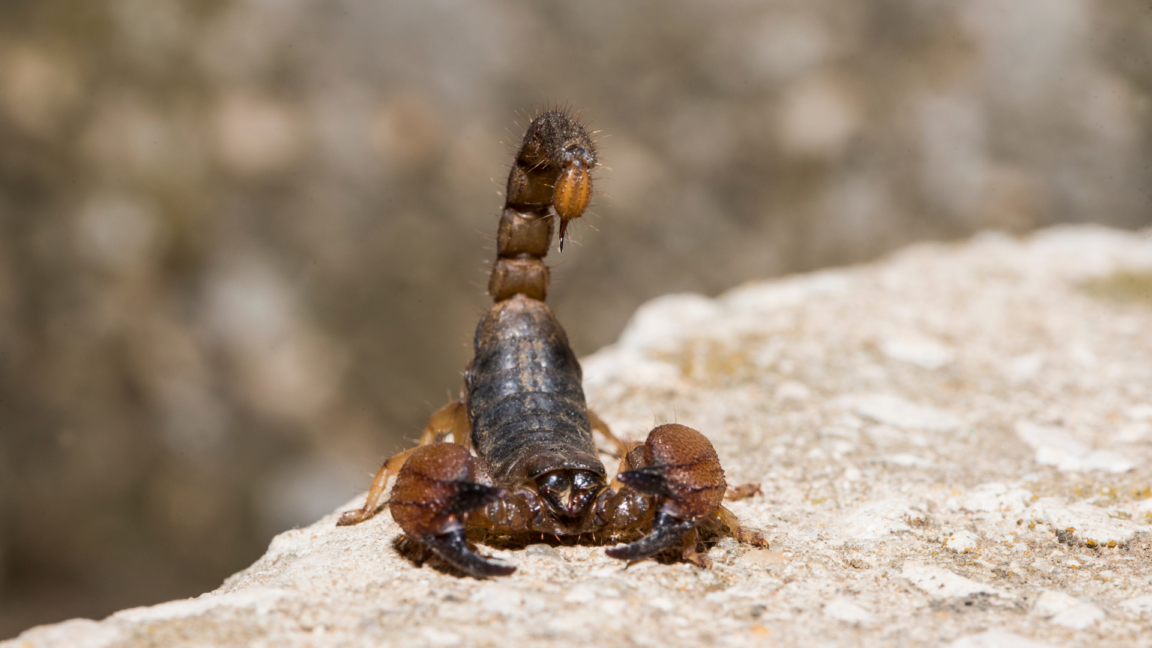
The venom of the scorpion, located at the tip of its tail, can cause intense pain, burning, discomfort, or even be fatal from a single sting. Initially, when stung, there will be a sudden sharp pain. Within the next 30 minutes, the pain intensifies along with swelling, redness, and a burning sensation at the site. Headache, nausea, high fever, and rapid heartbeat can also occur. If not promptly treated, seizures and fluid accumulation in the lungs can develop, potentially leading to death from myocarditis or respiratory failure.
First aid for scorpion venom
- When stung by a scorpion, wash the wound thoroughly with water and soap. Then, apply a cold compress to the wound with an ice pack wrapped in a cloth to soften the pain and constrict blood vessels, slowing down the spread of venom. Afterward, promptly take the patient to see a doctor.
How to prevent scorpions from entering your house
- Clean and declutter the garden around your house, ensuring that there are no hiding spots for scorpions such as under pots or beneath rocks, to discourage them from taking shelter.
- Seal all entry and exit points, especially gaps under doors and openings in walls. Repair any gaps promptly and keep doors closed.
- Ensure that water pipes are covered with grates or lids to prevent scorpions from entering.
- Place scented essential oils like lavender or citronella in vulnerable areas, such as around the house, doors leading to the garden, or in areas with high humidity like bathrooms and kitchens, as scorpions are deterred by these scents.
Rove Beetles
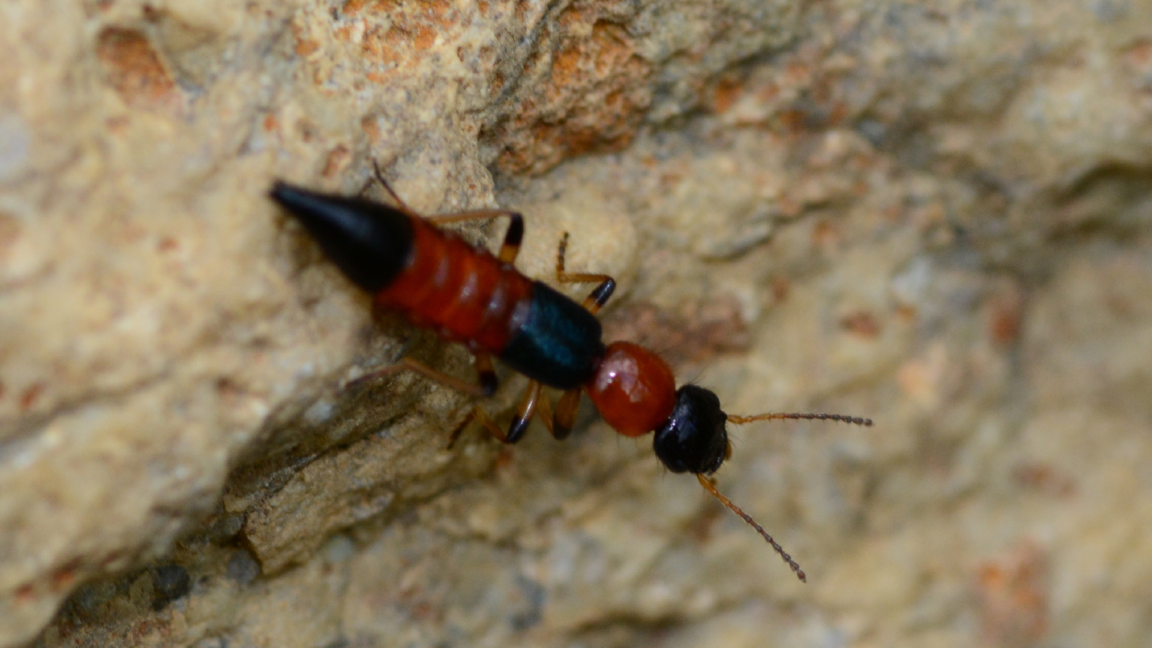
Rove beetles, also known as blister beetles, short-winged flower beetles, and ground beetles, can be commonly found near water sources, rice fields, and grassy areas. Particularly during the rainy season, these insects tend to proliferate across different provinces and can even be found in tall buildings.
However, rove beetles are not creatures you want to encounter, as they possess a potent and painful toxin. This is because the liquid in the body of rove beetles contains a substance called Paederin, which can damage the skin and tissue cells. When you come into contact with a rove beetle, it releases this liquid, causing intense burning pain, itching, redness, blistering, and even a rash with watery blisters and pus in the affected area on the skin.
First aid for rove beetle toxins
- If you come in contact with rove beetle toxins, immediately wash the affected area with soap and clean water, or use saline solution to cleanse the wound.
- If blisters and redness occur, you can apply medication to treat the redness, which should naturally fade within approximately 2-3 days. However, if severe symptoms arise due to an allergic reaction to the toxin, seek medical attention promptly. A doctor may use steroids for treatment. As for the black marks that appear, they will gradually fade and disappear on their own without scarring.
How to prevent rove beetles from entering your house
- Install a wire mesh on doors and windows.
- Close doors and windows completely before it gets dark to prevent rove beetles from flying into the house via following light sources.
- Switch from white light bulbs to yellow.
- If you encounter a large amount of rove beetles in your living area, inspect and eliminate sources of standing water where they might breed.
- When you come across or come into contact with rove beetles, do not squash or flick it away with your bare hands. Instead, use a cloth or paper to gently remove the insect and quickly wash the area of skin that came into contact with the insect using water and soap.
- Planting pyrethrum flowers alongside garden plants and kitchen vegetables is effective. The scent from these flowers possesses properties that can disrupt the nervous systems of insects, ultimately causing paralysis and eventually leading to their demise.
- Spray a non-chemical insect repellent around light fixtures and the area surrounding the sleeping area.
- Deter insects from flying into the house by using insect trap lights, placed in areas away from the house.
- Eliminate the habitats of rove beetles by regularly trimming the grass around the house to keep it short.
- Dispose of food and vegetable leftovers by placing them in black plastic bags, securely tying the bags, and then taking them outside to the garbage bin. This is because these food scraps also serve as a food source for rove beetles.
Cockroaches
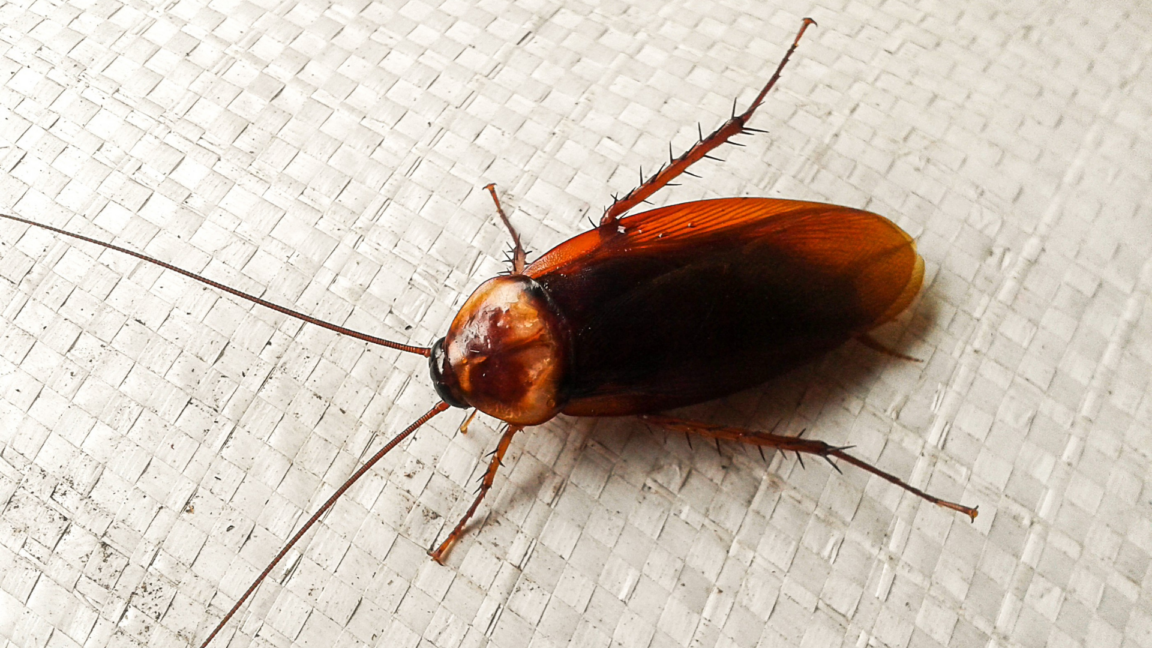
During the rainy season, when the air is humid, cockroaches often seek dry places for shelter and may enter human dwellings. Cockroaches can also act as vectors for various diseases, transmitting conditions such as Leishmaniasis, Filariasis, diarrhea, food poisoning, and more. Additionally, some species of cockroaches carry dangerous pathogens that pose risks to human health, such as roundworm infection, tungiasis, and bedbug infestation.
How to prevent cockroaches from entering your house
- Inspect and seal any openings that cockroaches could use as entry points, such as gaps around doors, windows, and cracks in walls and floors of the house. Use materials like silicone or sealants to cover these gaps and prevent cockroaches from entering.
- Maintain the porch and the area around the house properly, and avoid leaving any trash or debris.
- Remove weeds around the house, as they can serve as hiding places for cockroaches.
- Have proper outdoor lighting around the house, as cockroaches are attracted to light. Therefore, to prevent cockroaches from entering the house, use appropriate outdoor lighting, such as placing lights along the exterior walls of the house and in the garden.
- Use chemical substances, but it's important to use them in appropriate quantities and follow safety guidelines for proper usage.
Mosquitoes

During the rainy season, water accumulates in various areas and becomes breeding grounds for numerous mosquito species. Apart from mosquitoes causing itchy bites, they also transmit various diseases to us, especially the Aedes mosquitoes that carry diseases like dengue fever. Therefore, during this rainy period, it's important to prevent mosquitoes from breeding around our homes to minimize the risk of disease transmission.
How to treat a mosquito bite
- If bitten by a mosquito, it's advisable to clean the bitten area with water and soap, then gently pat it dry. Following that, you can apply a cold compress to alleviate swelling by placing it directly on the bitten area for about 10 minutes. Alternatively, if a cold compress isn't convenient, you can also use insect bite relief products to treat the affected area.
- Using allergy relief medication can be helpful for individuals who experience mild mosquito bite allergies. These medications inhibit the release of histamines, which are substances that the body releases in response to allergens. In this case, the allergen could be certain components in mosquito saliva that enter the body when bitten, triggering an allergic reaction. These medications can provide relief for symptoms such as redness, itching, and minor swelling. However, if the symptoms worsen, seek medical attention immediately.
- Avoid scratching the mosquito bite as it could further trigger itching and inflammation. The scratching can also cause small wounds around the affected area.
How to prevent mosquitoes from entering your house
- Destroy mosquito breeding sites both indoors and outdoors.
- Choose doors and windows with wire mesh to prevent mosquitoes from entering.
- Keep doors and windows closed tightly, especially during the evening and twilight hours.
- Use mosquito repellent products such as scented oil and apply mosquito repellent lotion.
- Ensure that the house is well-lit and ventilated, reducing dark areas where mosquitoes thrive.
- Use mosquito traps to help control mosquitoes.
Stay Dry and Safe during the Rainy Season!
Our aspiration is that the insights shared in this article prove valuable in assisting individuals and their families to safeguard themselves against the potential hazards posed by these creatures. The rainy season, in particular, marks a period when a range of hazardous animals, including some venomous ones, exhibit heightened activity. It's advisable for everyone to stay watchful and maintain consistent cleanliness within and around their homes. Maintaining a well-kept and well-lit environment will discourage these harmful creatures from seeking refuge, thereby minimizing the risk of unintended harm to individuals or their loved ones.
Looking to stay dry and safe during this rainy season? Let PropertyScout help you find your dream haven today!



